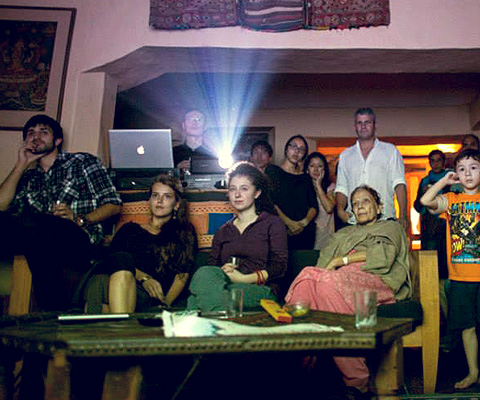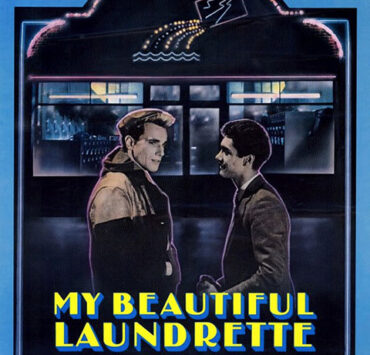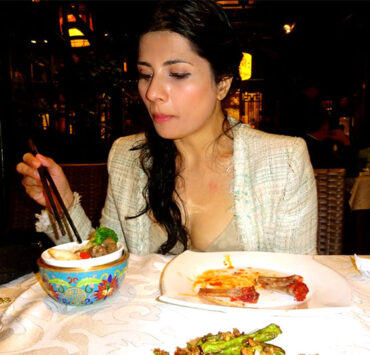Whenever I think of Dharamshala, what comes to mind are the boisterous, happily exhausting, twelve-hour-long bus rides to its nestled hilltops and kaleidoscopic recollections of a flurry of cafés, eateries, and monasteries, the rush of photographers, and the files of monks and trekking boots.
Dharamshala’s call to travellers has been known to resound far and wide, and I have answered it each time, much like everyone I know. But this year, Dharamshala, despite its old, fuzzy familiarity, showed its penchant to surprise after all, thanks to my discovery of the Dharamshala International Film Festival (D.I.F.F.).
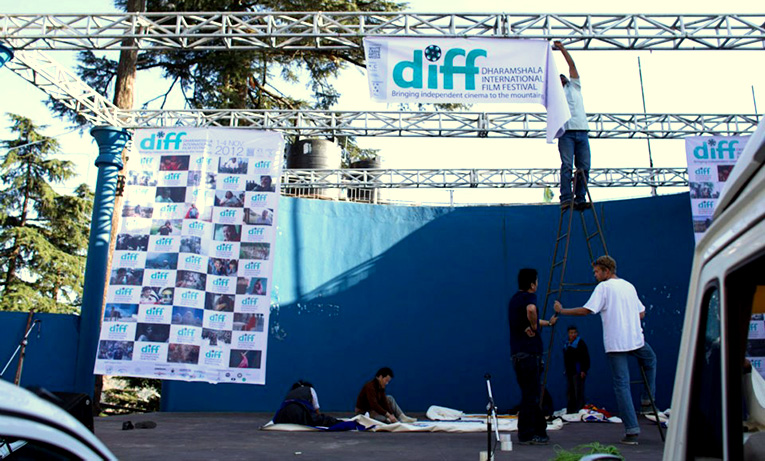
The Dharamshala International Film Festival was conceptualised by filmmakers Ritu Sarin and Tenzing Sonam.
The D.I.F.F. debuted in November 2012 and was conceptualised by filmmakers Ritu Sarin and Tenzing Sonam of White Crane Films as a means of bringing quality contemporary and independent cinema to Dharamshala. The festival is presented through their trust White Crane Arts and Media, which promotes contemporary art, cinema, and independent media practices in the Himalayan region. Sarin and Sonam have long believed that Dharamshala, a small yet cosmopolitan town — capital of the Tibetan diaspora and home to the Dalai Lama — could serve as a perfect confluence of all cultures. “We have been living in Dharamshala for 18 years now, so this is home. However, we also understand its popularity for tourists who visit from all across the globe,” says Sonam. “When Ritu and I decided to launch the film festival here, it was a natural choice for us as inhabitants, but we also knew that people would come.” Didn’t the fact that the town didn’t have its own cinema hall create a bit of a hurdle for a team that wanted to host a film festival? “We have a makeshift cinema hall every year,” he tells me. “It is important to have this kind of cinema. One of our main aims is [to promote] independent cinema and D.I.F.F. attempts to showcase just that.”
When asked about the differences between film festivals in cities and the brave new one in Dharamshala, festival manager Sana Rizvi says, “I come from a culture of film festivals abroad, which are much larger and better funded. Those festivals are made up of a lot of parties, they are filled with glitz and glamour. Keeping that sort of culture in mind, one can claim that the D.I.F.F. doesn’t have as many resources. But what it does have is good cinema. Here, the focus is more on the art of films rather than on the glitter, and for me, that is a refreshing change. More and more people are eager and excited to come to the D.I.F.F. every year.” I ask her how this has been achieved, and she gushes: “There is a lot more outreach this time around via social media, and the amount of people that have been following us on Facebook has tripled this year.”
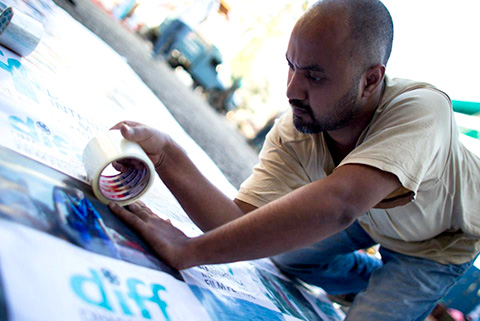
“The D.I.F.F. has been a platform for the local community, to encourage them to engage in the indie scene and to interact over cinema.”
For a festival that was launched to manifest a difference and activate change, the D.I.F.F. has seemingly outdone itself this year, if the list of scheduled films is anything to go by. A lot of the films that will be showcased at the festival are based on today’s top issues: Tibetan immigration, the uprisings in the Middle East, and the Syrian, Palestinian, and Israeli conflicts. Was there any particular agenda with regards to the selection of films for the festival? Sonam fills me in: “Issues that are socially relevant and those of political and human conflict are definitely of great interest to Ritu and me. Having said that, I don’t think we set out to consciously pick films that were made on the Israeli-Palestinian conflict, or only a certain kind of cinema. We want to highlight what’s important today, and this year’s focus just happens to be the Middle East. Our selection of films is an organic process, and we have long since decided that the films we choose shouldn’t just be issue-based films for the heck of it — they should have a voice.” Sonam sounds deservedly buoyant as he rattles off an enviable series of names: there are films made by Egyptian filmmakers and Palestinian directors; there are stories told from personal points of view, from battlefronts, and torn childhoods. Most of them sound like they are raw, gritty, and very real.
The 2014 edition of the Dharamshala International Film Festival will also see the launch of the D.I.F.F. Film Fellows programme — a fellowship that will be awarded to five worthy applicants who hail from India’s mountainous Himalayan region; this includes the states of Jammu and Kashmir, Himachal Pradesh, Uttarakhand, Sikkim, Arunachal Pradesh, Meghalaya, Nagaland, Manipur, Mizoram, Tripura, and the hill regions of West Bengal and Assam. It is an admirable move. “We want to start small,” Sonam pronounces modestly. “We wanted to do something to encourage filmmakers from the Himalayan regions, from the northeast. There are many young aspiring filmmakers in these places who are talented and eager to contribute with their brand of cinema, who are eager to have their voices heard, but they do not have the access. This year, 28 applicants from across Kashmir to Arunachal Pradesh have participated in the programme, sending in their films, of which five have been selected by our esteemed selection committee.” The winning applicants will then be enrolled into a mentorship programme with visiting filmmakers; they shall watch cinema from the world over and attend masterclasses and workshops hosted by some of the best names in the industry.
The D.I.F.F. is clearly more than just about screening and watching films. Rizvi reaffirms the festival’s core objective when she claims, “This is not a homogeneous community. There are people from all over — people of different ethnicities with different tastes. Yet I am hoping that cinema will act as a unifier and bring the community together, if only to watch films. The D.I.F.F. has been a platform for the local community, to encourage them to engage in the indie scene and to interact over cinema.”
Far away from the chaotic hustle and bustle of Indian cities, the Dharamshala International Film Festival, with its eclectic mix of films on exile, isolation, and conflict, its championing of a cinema of difference, of soul and stories, has carved out a unique niche for itself, and its founders are in no hurry to expand the festival. “With each year we learn some more,” says the soft-spoken Sonam. “We grow more and more confident about the direction this festival wants to take, and we have become more focused about the kind of cinema we want to propagate. After all,” he says, “we are only doing this because we love cinema.”
The third edition of the Dharamshala International Film Festival will take place in McLeodGanj, Dharamshala, from October 30 to November 2, 2014.




